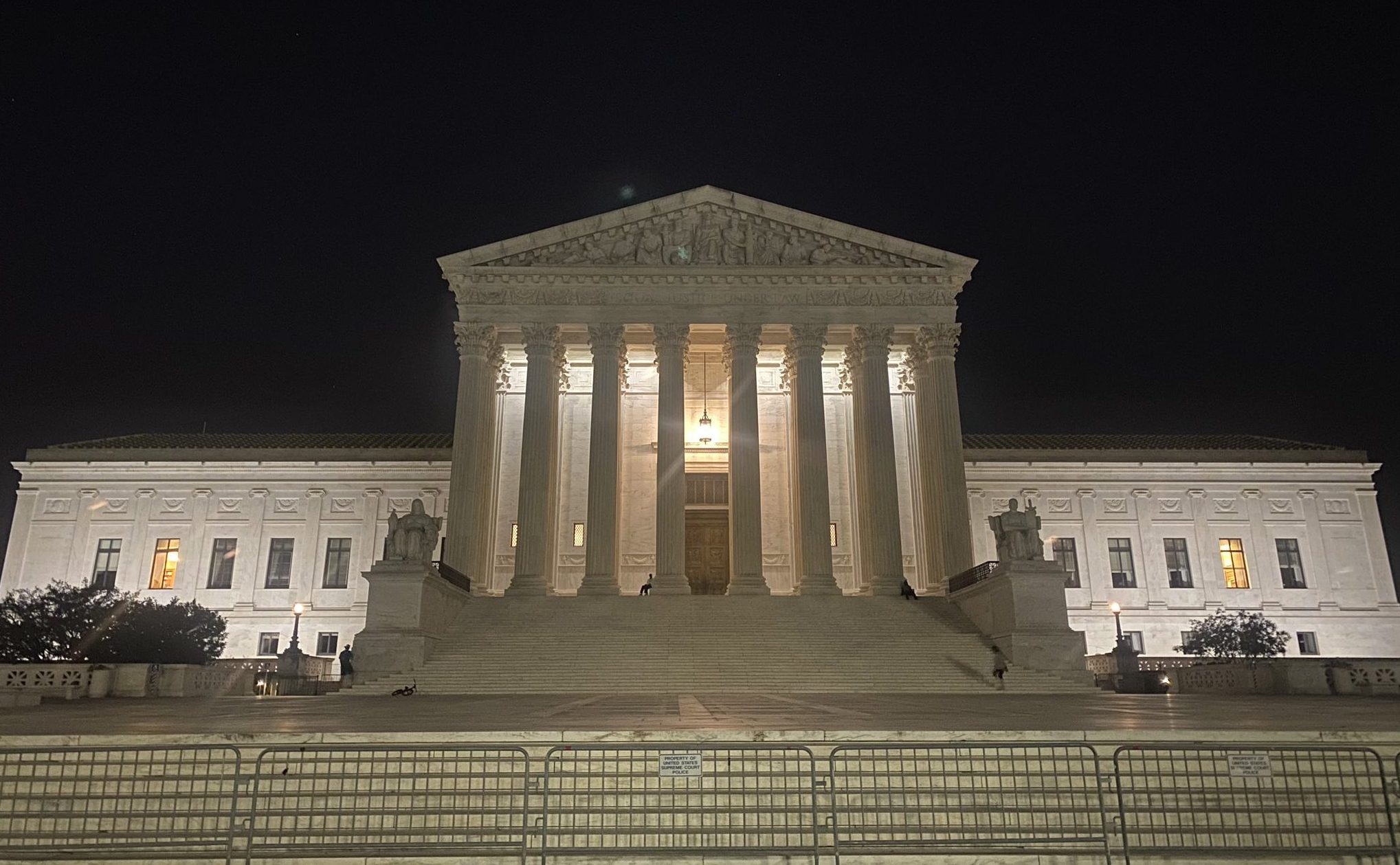Emergency docket
Texas abortion ban goes into effect after justices fail to act

on Sep 1, 2021 at 9:38 am

The Supreme Court on Tuesday night took a step that anti-abortion activists have hoped for, and abortion-rights supporters have feared, since the death of Justice Ruth Bader Ginsburg nearly a year ago. By failing to respond to a plea for them to intervene, the justices allowed a Texas law that bans nearly all abortions to go into effect early Wednesday morning. The abortion providers challenging the law say that it will bar at least 85% of abortions in the state and will likely cause many clinics to close. The justices could still act on the providers’ request at any time.
The law bans abortions after about six weeks of pregnancy – a time when many people do not yet know they are pregnant – and allows private citizens to sue anyone who helps a patient get an abortion. The Texas legislature passed the law as part of an effort to undercut the Supreme Court’s landmark decisions in Roe v. Wade and Planned Parenthood v. Casey, which established a constitutional right to have an abortion before the point of fetal viability, generally understood to occur around 24 weeks of pregnancy.
Court watchers and people on both sides of the abortion debate kept vigil into the early hours of Wednesday morning, waiting for an order that never came from the justices. Many experts expected the court to act before midnight central time, when the law was scheduled to take effect. Instead, the court – at least for now – declined to block the law despite the fact that it defies Roe and Casey, the future of which are squarely at issue in a separate case, to be argued in the upcoming 2021-22 term, involving a Mississippi law that bans most abortions after 15 weeks of pregnancy.
The law at the center of the Texas case, known as S.B. 8, prohibits doctors from performing abortions if they can detect a fetal heartbeat, including the kind of cardiac activity that normally occurs at roughly the sixth week of pregnancy. In a twist intended to make the law harder to challenge in court, the law does not rely on state officials to enforce the ban. Instead, the law tasks private individuals with bringing lawsuits against anyone who provides or “aids or abets” an abortion. Anyone who brings a successful lawsuit can collect $10,000 or more from the person who is found to have violated the law. The unusual private-enforcement scheme distinguishes the Texas law from other states’ abortion bans, all of which have been blocked by court rulings ordering state officials not to enforce them because they run afoul of Roe and Casey.
Texas Gov. Greg Abbott signed the law on May 19. Abortion providers went to court to challenge the law in July. They argued (among other things) that the law violates their patients’ constitutional right to end a pregnancy before viability.
After the district court denied the defendants’ motion to dismiss on Aug. 25, the defendants turned quickly to the U.S. Court of Appeals for the 5th Circuit. The court of appeals granted the defendants’ request to put the district-court proceedings, including an Aug. 30 hearing on the challengers’ request for a preliminary injunction, on hold, and it denied the challengers’ request to expedite the appeal, setting the stage for the challengers to seek emergency relief in the Supreme Court on Monday afternoon.
In asking the court to block the law from going into effect, the challengers stressed that the six-week mark is “a point in pregnancy at which a State may not prohibit a patient from deciding whether to end her pregnancy.” They assured the justices that they could stop the enforcement of the law without necessarily tipping their hand on the substance of the underlying dispute, but they painted a dire picture of the consequences if the court did not act. They told the justices that, because the court of appeals had rejected their plea to expedite the appeal, “the rights of Texas women to obtain a legal abortion” will be “in jeopardy for months or more” while the litigation winds through the courts.
The Texas attorney general and other defenders of the law urged the justices to stay out of the dispute. Even if S.B. 8 were unconstitutional, the state contended, there still would be no reason for the Supreme Court to intervene because courts are limited in their power to grant relief before laws have actually been enforced. In general, courts can bar people from doing something, but they have no power to “expunge the law itself,” the state said. And in this case, the state contended, the challengers sued Texas government officials who “explicitly do not enforce the law” as well as an anti-abortion activist who has testified that he will not bring any lawsuits under the law. That means an order from the Supreme Court at this point would have no effect and would exceed the court’s authority, the state argued.
The fact that the challengers can’t sue state officials before the law goes into effect, the state continued, does not make the law unconstitutional: If the abortion providers are sued in state courts for violating S.B. 8, the state assured the justices, they can defend themselves by arguing that the law is unconstitutional.
As the deadline for the law to go into effect approached, Whole Woman’s Health – the lead plaintiff in the case, indicated on Twitter that its staff and doctors would continue to provide care right up until 11:59 central time. Shortly before midnight, Whole Woman’s Health CEO Amy Hagstrom Miller tweeted that the company had “just finished care for our last patient in Texas today.” Summarizing the state of play, Hagstrom Miller concluded, “And now we wait.”
This article was originally published at Howe on the Court.


